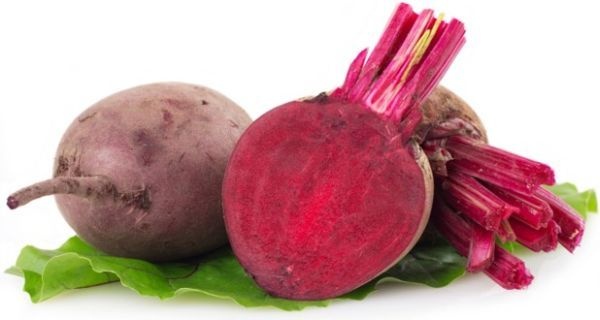How often do you include beetroot in your diet? Well, if you don’t remember when you ate this purplish-red root the last time, you need to start consuming it due to its multiple health benefits. From keeping your blood sugar levels in control to improving your sexual stamina, this vegetable is a well know antidote for anaemia in many Indian households. In addition to acting as a natural food colour, it can be consumed in the form of salad, juice or halwa. And above all, there are 11 reasons why you should include beetroot into your diet.

#1 Lowers your blood pressure levels
Beetroot is a great source of nitrates, which when consumed, is converted to nitrites and a gas called nitric oxides. Both these components help to widen the arteries and lower blood pressure. Researchers also found that having just about 500 grams of beetroot every day reduces a person’s blood pressure in about six hours.
#2 Reduces ‘bad’ cholesterol and prevent plaque formation
Beetroot is known to contain large amounts of soluble fibres, flavanoids and betacyanin. Betacyanin is the compound that gives beetroot its purplish-red colour and is also a powerful antioxidant. It helps reduce the oxidation of LDL cholesterol and does not allow it to deposit on the walls of the artery. This protects the heart from potential heart attacks and stroke reducing the need for medication.
#3 Good for pregnant women and unborn child
Another amazing quality of the root is that it has an abundant supply of folic acid. Folic acid is important for pregnant mums and unborn babies because it is an essential component for the proper formation of the unborn child’s spinal cord, and can protect the child from conditions such as spina bifida (is a congenital disorder where the child’s spinal cord does not form completely and in most cases looks like it has been divided into two at the base). Beetroot also gives mums-to-be that extra energy boost required during pregnancy.
#4 Beats osteoporosis
Beetroot is packed with mineral silica, an important component for the body to use calcium efficiently. Since calcium makes up our bones and teeth, having a glass of beetroot juice a day could help keep conditions such as osteoporosis and brittle bone disease at bay.
#5 Keeps diabetes under check
People suffering from diabetes can fulfil their sweet craving by adding a little beetroot in their diet. Being a medium glycaemic index vegetable (means it releases sugars very slowly into the blood), it aids in maintaining your blood sugar levels low while satiating your sugar craving.
#6 Treats anaemia
It is a common myth that because beetroot is reddish in colour, it replaces lost blood and is therefore good to treat anaemia. While this may sound a bit outrageous to many, there is a partial truth hidden in the myth. Beetroot contains a lot of iron. Iron helps in the formation of haemagglutinin, which is a part of the blood that helps transport oxygen and nutrients to various parts of the body. It is the iron content and not the colour that helps treat anaemia.
#7 Helps relieve fatigue
A study presented at the American Diabetics association’s conference stated that beetroot helps boost a person’s energy. They said that due to its nitrate content it helped dilate the arteries thereby helping in the proper transportation of oxygen to various parts of the body, increasing a person’s energy. Another theory was that because the root is a rich source of iron, it helps in improving a person’s stamina.
#9 Protects you from cancer
The betacyanin content in beetroot has another very important function. In a study done at the Howard University, Washington DC, it was found that betacyanin helped slow the growth of tumours by 12.5 percent in patients with breast and prostate cancer. This effect not only helps in the diagnosis and treatment of cancers but it also helps cancer survivors remain cancer-free longer.
#10 Beats constipation
Because of its high soluble fibre content, beetroot acts as a great laxative. It helps in regularising your bowel movement by softening stools. It also cleanses the colon and flushes out the harmful toxins from the stomach.
#11 Boosts brain power
A study done at the University of Exeter, UK, showed that drinking beetroot juice could increase a person’s stamina by 16 percent, because of its nitrate content. Known to increase the oxygen uptake by the body, the study also found that because of this one factor, it could also help in the proper functioning of the brain and beat the onset of dementia. It has also been seen that nitrate when converted to nitrite helps in the better transmission of neural impulses, making the brain work better.



